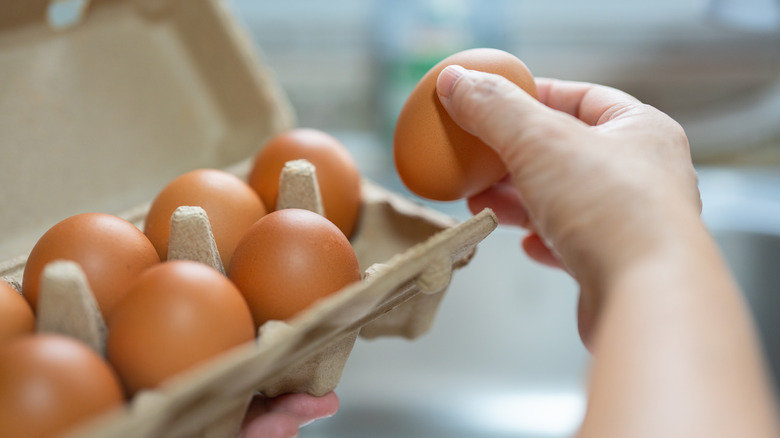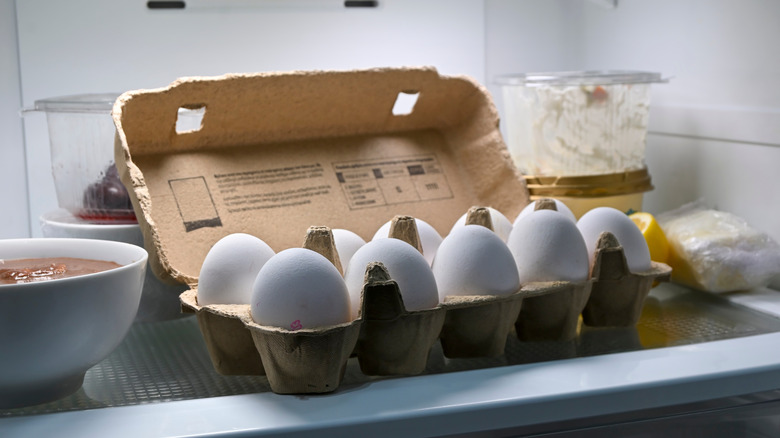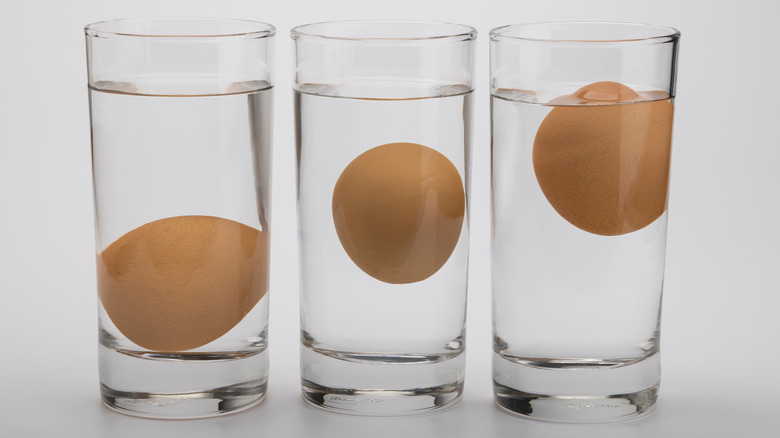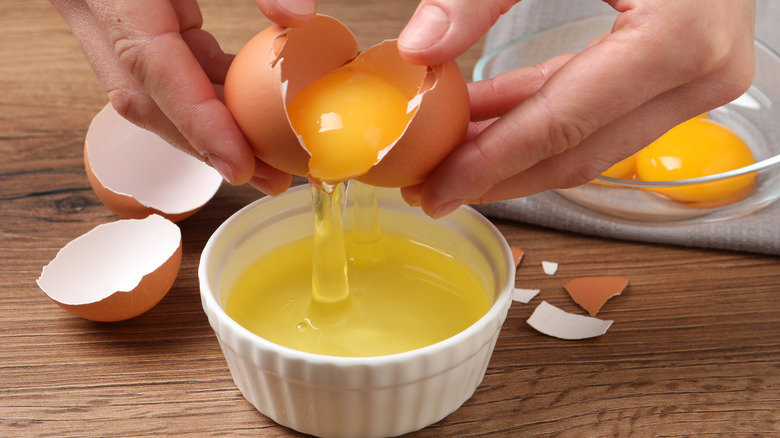How To Tell If The Eggs In Your Fridge Are Still Good
There are always eggs in my fridge, because they're almost always the solution for those times when you don't want to cook. Some nights I can barely summon the strength to spend even five minutes in the kitchen, and it's possible to cook an egg in under 60 seconds. You can scramble them up into unique omelet sandwiches, simmer them into shakshuka, fry them up with leftovers for a perfect fried rice.
Plus, eggs can lend nearly every dish a touch of sophistication. Take instant ramen: crack a few eggs into the pot while cooking, and suddenly you've got something rich, flavorful, and not quite so one-note.
But like any perishables in your fridge, you have to keep an eye on them.
Don't rely on the expiration date
There are things that the "sell by" date on an egg carton cannot possibly account for. That date can't predict how long the eggs will sit in a possibly non-refrigerated delivery truck before they arrive at the store, or how long they'll wait to be shelved, or how long the it takes to drive them home in your car — all things you should consider if you live in a hot climate or are planning an epic Fourth of July deviled egg blowout. But eggs that are kept in the back of the fridge, where it's coldest, often stay good well past their expiration date.
If you're concerned about the state of your eggs for any reason, there's a simple trick that will tell you if they're still good: the float test.
Why and how the float test works
When eggs are farm fresh, there is a thin coating on top of the eggshell called the bloom (or cuticle), which provides an extra layer of protection, sealing the microscopic holes in the eggshell to keep bacteria out of the egg. When factory-farmed eggs are processed, this layer is washed off, which is why eggs must stay refrigerated to slow the airflow between the inside of the egg and the outside environment. (If you've ever been curious about why Europeans don't keep their eggs in the fridge, it's because their eggs aren't processed.)
Now, to the float test: as eggs age, the air pocket inside steadily grows larger and larger, meaning that when it gets old enough, the egg will float in water. A fresh egg with a small air pocket will immediately sink in a glass of water. TA-DA!
How to tell if cracked eggs are good
But let's say you've already cracked your eggs and are now beginning to doubt their freshness. Take a close look at the whites: if they're cloudy, they're fresh. Clear whites mean the egg is older, but they're still fine to eat. If you notice a faint hint of pink, throw the egg out. As for yolks, they'll be round and perky if they're young, and then get flatter and flatter as they age.
Additionally, it should go without saying that if, once cracked, your eggs smell like sulfuric farts, they've gone bad and you shouldn't eat them. Those eggs should be clearly labeled and set aside to be used for acts of revenge.



